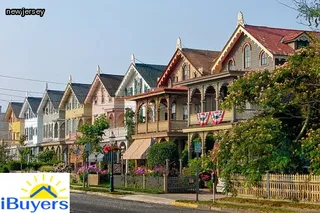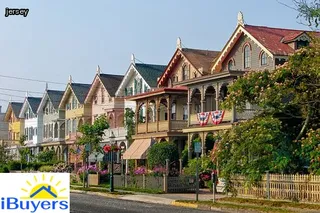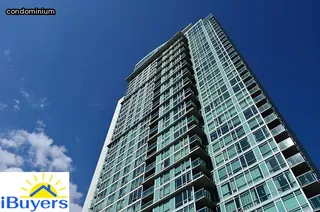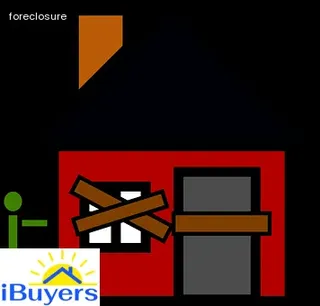Homeowner association (HOA) and condominium owner association (COA) assessments are fees paid by property owners that fund the maintenance and upkeep of their community. In New Jersey, these assessments are due monthly, quarterly, or annually, depending on the agreement set forth by the HOA or COA board.
Failure to pay these assessments can lead to a foreclosure notice being sent to the homeowner. Understanding what your HOA or COA assessments cover is important in order to stay current with payments and avoid being foreclosed upon.
This typically includes routine maintenance such as lawn care and landscaping, repairs of common areas such as pools, playgrounds, and clubhouses, as well as other services like security systems for the entire community. Additionally, some HOAs may also offer additional amenities that come from special funds generated from the assessment payments such as snow removal and trash pickup.
It is important for homeowners in New Jersey to understand that failure to pay this assessment could result in a foreclosure notice being issued against them which can be devastating financially.

Owning a home in New Jersey comes with many responsibilities, one of which is paying common charges such as Homeowner Association (HOA) fees. Unfortunately, some homeowners have not been able to keep up with these fees and are now facing the consequences of lien foreclosure.
Common charges that lead to lien foreclosure can include monthly dues, special assessments, fines, legal fees, and other costs. When a homeowner fails to pay their HOA dues or any other common charge, the HOA board is legally allowed to place a lien on the property and eventually foreclose if payments are still not made.
The homeowner may then be responsible for repaying all of the unpaid dues plus interest as well as any additional court costs or attorney's fees associated with the lien foreclosure. To avoid this situation altogether, it is important for New Jersey homeowners to stay up-to-date on their HOA dues and all other common charges related to owning a home.
Navigating mortgage payments with HOA or COA liens is a difficult task, especially for homeowners in New Jersey who are facing foreclosures due to delinquent Homeowner Association (HOA) dues. In such a situation, the homeowner may be struggling to make payments on their mortgage while also trying to pay off their past-due HOA fees.
This can create a tight financial squeeze and make it hard to stay current on both mortgages and HOA dues. Thankfully, New Jersey offers some legal tools that can help homeowners in this situation manage their debts.
For instance, homeowners may be able to negotiate with the lender for forbearance or a loan modification to reduce their monthly payments and make them more affordable. They could also be eligible for various debt relief programs offered by the state.
Additionally, working with an experienced attorney may give them access to resources like bankruptcy protection or foreclosure defense that can help protect them from losing their homes altogether.

When facing a foreclosure situation due to delinquent HOA dues, New Jersey homeowners should look into seeking legal assistance. A lawyer can provide advice on the best course of action for a particular situation and can help explore all possible options.
It is important to be aware of state and local laws as they pertain to foreclosures, and an attorney may be able to explain the potential consequences of any proposed course of action. They will also be able to inform homeowners about any relevant deadlines or filing requirements.
In addition, a lawyer can often negotiate with lenders or creditors on behalf of their client, potentially leading to more favorable terms or even a complete dismissal of the case. For those facing foreclosure in New Jersey due to delinquent HOA dues, it is worth exploring the possibility of seeking legal assistance.
Attending seminars and events on Association Regulations can help New Jersey homeowners stay informed on the financial obligations of their HOA dues. With foreclosures becoming a reality for those unable to pay their dues, learning the intricacies of association regulations is more important than ever.
Knowing what fees are due, when they are due, and how delinquent payments should be handled can help protect homeowners from foreclosure proceedings. It’s also beneficial to learn more about the types of collection activities HOAs can use in order to enforce payment of dues.
Understanding these regulations could be the key to avoiding a foreclosure filing and allowing homeowners to remain in their homes. Seminars and events that focus on Association Regulations provide an invaluable opportunity for New Jersey homeowners to get up-to-date information about HOA dues and other important matters related to owning a home in an association setting.

New Jersey homeowners are facing a difficult situation due to delinquent Homeowners Association (HOA) dues. In order to understand the state laws that impact these associations, it is important to review the relevant regulations.
New Jersey state law requires HOAs to maintain certain records, including an annual budget, financial statement and meeting minutes for each year. HOAs are also required to provide certain disclosure documents to current and prospective members prior to their purchase of a property in the association.
Furthermore, state law dictates how HOAs manage their collection efforts for unpaid dues. The board of directors must first issue a notice of assessment delinquency before pursuing legal action against a homeowner who has failed to pay dues.
This notice should include information about the delinquency amount as well as any applicable interest or fines. Finally, under New Jersey state law, an HOA can file a lien on a property if dues remain unpaid for more than 45 days following the issuance of the delinquency notice.
The government of New Jersey is working to help homeowners facing foreclosure due to overdue Homeowners Association (HOA) dues. In an effort to protect homeowners from the financial hardships caused by delinquent payments, the state has implemented a series of programs designed to assist those in need.
The New Jersey Department of Banking and Insurance offers a foreclosure prevention program that provides counseling and other resources to help individuals facing foreclosure, while the New Jersey Housing and Mortgage Finance Agency provides assistance with loan modifications and refinancing. Additionally, New Jersey courts have taken steps to ensure that homeowners are not unfairly affected by HOA foreclosures through legislation like the Fair Foreclosure Act.
These government initiatives offer much needed relief for struggling households, allowing them to remain in their homes and continue making regular HOA dues payments.

When seeking information about Homeowners Association dues and delinquency, it is important to understand the laws and regulations in place. In New Jersey, homeowners have the right to request copies of HOA documents from the association, including meeting minutes, financial records, budget plans, contracts and any other relevant documents.
This can help homeowners understand where their dues are going and how they contribute towards the upkeep of common areas within the community. Additionally, if a homeowner is delinquent on payments or facing foreclosure due to non-payment of HOA dues, knowing what documents are available can help them be better informed when communicating with their HOA board or their lender.
Understanding current state regulations regarding payment requirements can also be beneficial in avoiding delinquencies in the future. It is important for all homeowners to remain informed of their rights when it comes to HOA dues and delinquency in order to protect themselves from potential foreclosure and other issues down the line.
When it comes to tackling delinquent HOA dues, New Jersey homeowners have a few options available. The first is to contact the HOA directly to try and negotiate a payment plan or reduced fees.
This may be an effective way of managing outstanding debts while avoiding additional costs such as late fees and legal expenses. Another option is to seek financial assistance from organizations like the Homeowner's Resource Center, which provides counseling and mediation services for those struggling with delinquent payments.
Additionally, those who are facing foreclosure due to unpaid dues can look into the New Jersey Foreclosure Mediation Program, which offers free mediation services in order to help resolve disputes between homeowners and lenders. Finally, individuals may be able to find relief by filing for bankruptcy or applying for a loan modification program.
No matter what option homeowners choose, it is important that they research their alternatives thoroughly in order to make sure they are making the best decision for their individual financial situation.

Staying up-to-date on relevant issues and topics is an important part of being a homeowner in New Jersey. This is especially true with the growing issue of foreclosures due to delinquent Homeowners Association (HOA) dues.
With the rise of HOAs all across New Jersey, it has become increasingly important for homeowners to stay informed about their HOA dues and any potential penalties they may face if they become delinquent. Paying attention to potential changes in local laws or regulations can help ensure that homeowners are aware of their rights and obligations as members of an HOA.
Additionally, staying up-to-date on news related to foreclosure proceedings due to delinquent HOA dues can help affected homeowners make decisions about how best to address their situation. Knowledge can be a powerful tool when it comes to protecting one's home from foreclosure, so staying informed and attentive is essential for any New Jersey homeowner.
In New Jersey, Homeowners Associations (HOAs) are overseen by the Department of Community Affairs. This department is responsible for ensuring communities follow state laws, bylaws, and regulations.
The Division of Local Government Services manages and regulates the fiscal operations of HOAs to ensure they are financially sound and operating legally. They also provide assistance with enforcement of HOA rules and regulations as well as management of disputes among homeowners.
Furthermore, the Department of Banking & Insurance provides oversight on all aspects related to insurance coverage for HOA’s including risk management and handling insurance claims when necessary. Additionally, the Office of Foreclosure Prevention, in partnership with Fannie Mae, offers programs that can help homeowners facing foreclosure due to delinquent HOA dues.
Ultimately, it is up to each homeowner to understand their rights and responsibilities as part of an HOA in order to prevent financial hardship or foreclosure due to unpaid fees or other issues.

In New Jersey, homeowners who are facing foreclosure due to delinquent HOA dues need to understand the rules and laws that govern their situation. It is important to remember that the HOA is a separate entity from the lender and there are specific rules and regulations that apply directly to HOAs in New Jersey.
Homeowners may be able to locate these rules by contacting their local government or they can look online for state-specific laws related to HOAs. Additionally, homeowners should know that they have certain rights when it comes to foreclosures, including the right to receive notification of any legal action taken against them by their HOA.
Knowing where to find information on HOA rules and laws in New Jersey can help homeowners avoid foreclosure and protect their investment.
New Jersey homeowners who are considering joining or leaving a Homeowners Association (HOA) need to be aware of the potential risks and implications involved. Joining an HOA can bring a number of benefits such as improved property values, access to amenities, and a sense of community.
However, it comes with certain requirements that must be met in order to remain in good standing, including the payment of HOA dues on time. If these dues are not paid on time, homeowners may face foreclosure from their HOA.
This can have serious financial repercussions for the homeowner, so it is important to make sure that all dues are paid promptly if they choose to join an HOA. Leaving an HOA also has its own implications; homeowners need to be aware that when they leave they will no longer have access to the benefits they once enjoyed while still being responsible for any unpaid dues up until that point.
It is essential for New Jersey homeowners considering joining or leaving an HOA to do their research beforehand and understand what their rights and responsibilities are before taking any action.

In New Jersey, homeowners who are facing foreclosure due to delinquent Homeowner's Association (HOA) dues may be able to legally dissolve the HOA. The process of dissolving an HOA in New Jersey requires that the homeowners obtain a majority vote from members of the association.
Once a majority vote is obtained, the HOA must file paperwork with the state and county clerk's office in order for dissolution to occur. Additionally, any remaining debts must be paid off through either cash or by a loan, and all financial records must be reviewed by an auditor before dissolution can take effect.
Furthermore, legal notices must be sent to those affected by the dissolution process and all other necessary steps must be taken in order for it to be completed successfully. Although dissolving an HOA is a complicated process, taking these steps will help ensure that it is done properly and effectively in New Jersey.
The laws governing homeowners associations (HOAs) and delinquent dues vary from state to state. In New Jersey, the laws are different compared to other states when it comes to what happens when a homeowner fails to pay their HOA fees.
In some states, HOAs are allowed to foreclose on a property if a homeowner fails to make payments, while in others they may only be able to place a lien on the property and not take full ownership of it. It's important for homeowners in New Jersey who are facing delinquencies with their HOA dues to understand the laws that govern them.
That way, they can be fully aware of what could happen if they don't make payments on time or don't make payments at all. Furthermore, it's important for all homeowners across the country to review their local HOA regulations in order to ensure they are abiding by the law and avoiding any negative consequences associated with failing to pay dues on time.
New Jersey homeowners face a difficult reality if they fall behind on their Homeowner's Association (HOA) fees. If delinquent HOA dues are unpaid, homeowners in New Jersey may be subject to foreclosure or other legal action.
Anyone who owns property in a community governed by an HOA should know that failure to pay HOA fees can have serious consequences, including the loss of their home. While payment plans and other options may be available for those struggling to pay HOA dues, it is important to understand that not paying can lead to foreclosure proceedings.
Failing to make payments on time and in full can also result in late fees and penalties, as well as additional legal costs. It is therefore essential for any homeowner who falls behind on their HOA dues to act quickly, contact the association board and take steps to rectify the issue before any further financial harm is done.

In New Jersey, HOAs can evict homeowners who are delinquent on their dues. Many homeowners in the state are facing foreclosure due to an inability to pay their HOA dues.
The process of eviction is often very difficult for both the homeowner and the HOA. In order for an HOA to begin eviction proceedings, it must first provide a written notice of delinquency to the homeowner and give them an opportunity to cure the issue.
If the homeowner fails to respond or make payment within the time period specified in the notice, then the HOA may file a complaint with the court. The court will then schedule a hearing, at which point both sides may present evidence as to why or why not eviction should take place.
If the court finds that eviction is warranted, it will issue a judgment granting it. It is important for all New Jersey homeowners to understand their rights when dealing with an HOA in order to avoid potentially costly foreclosure proceedings.
The Homeowners’ Association (HOA) in New Jersey is subject to the New Jersey Condominium and Planned Real Estate Development Act, a statute that outlines the rules, regulations, and responsibilities of HOAs. This statute states that an HOA can impose reasonable fines on homeowners who fail to pay their association dues in a timely manner.
In cases where homeowners are delinquent in their dues for more than one year, the HOA may foreclose on their property. The law also requires HOAs to provide homeowners with at least 30 days’ notice before taking action against them for any delinquencies.
Furthermore, it outlines procedures for dispute resolution between homeowners and HOAs if either party does not comply with the terms of the agreement. As such, it is important for all New Jersey homeowners to be aware of the statutes governing HOAs so they can protect themselves from foreclosure due to unpaid dues or other violations of the agreement.
New Jersey is known as a "Super Lien" state, which means that homeowners face a particularly aggressive type of foreclosure when delinquent on their Homeowners Association (HOA) dues. Under New Jersey law, HOAs have the right to file liens on delinquent members' properties and foreclose if payment is not made within 120 days.
This can have serious consequences for homeowners who have not kept up with HOA dues, as they may be subject to foreclosure and lose their home due to delinquent payments. Furthermore, HOAs are able to add additional fees, such as interest and legal costs, on top of the regular dues amount which can cause delinquencies to quickly add up.
It's important for New Jersey homeowners to understand the potential consequences of being delinquent on HOA dues in order to protect themselves from foreclosure.